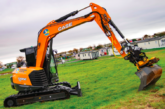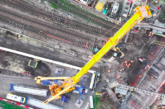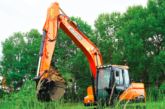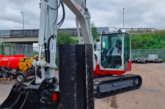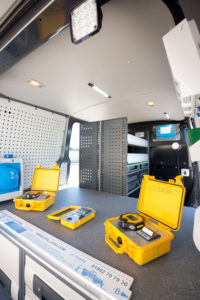 United Plant Services is on a mission to become the industry choice for plant machinery compliance and keeping people and assets operating safely in the process
United Plant Services is on a mission to become the industry choice for plant machinery compliance and keeping people and assets operating safely in the process
As plant equipment compliance checks are now a legal requirement, contractors are paying closer attention to health and safety regulations. With contracts and agreed timescales for projects and site operations, it’s also important to ensure non-compliance issues do not lead to work delays, the risk of financial penalty or conviction, or – and more importantly – personal injury.
In 2017/18, 517 cases were prosecuted by the Health and Safety Executive (HSE) and, in Scotland, the Crown Office and Procurator Fiscal Service (COPFS), resulting in fines totalling £72.6 million in relation to health and safety offences, with an average penalty of around £147,000 per case.
United Plant Services’ Compliance Engineer, Steve Siggee, believes that in order to better safeguard against injury or prosecution, companies should understand and manage the compliance regulations that specifically apply to them and bring service partners onboard that are versed in codes of practice and directives that relate specifically to the sector.
“Compliance testing is fast becoming an integral part of our industry,” he explains. “Now more than ever the safety of operators is considered paramount and every business has a corporate responsibility to ensure they understand their legal responsibilities and regularly maintain their machines.
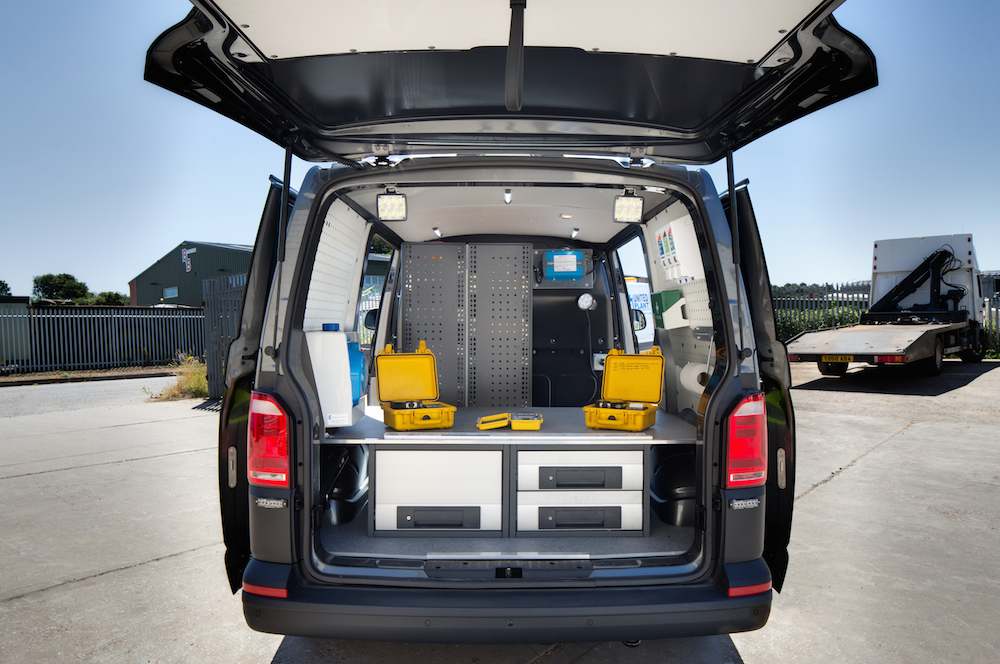
“The significance in this area has led to a demand for United Plant’s compliance service, as more companies look to specialists to ensure they are meeting all legal requirements and are providing a safe working environment for their employees.
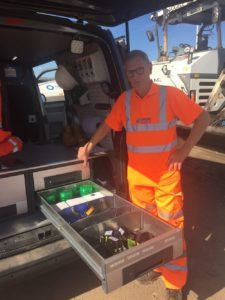
“We have a dedicated compliance team, with purpose trained engineers, all of whom operate custom designed compliance vans. The vehicles and engineers cover geographical customer territories and operate according to meticulously planned schedules, ensuring vans are fully equipped to perform complete compliance inspections, risk assessments, minor repairs as well as audit trails and equipment histories.
“Planning is critical to provide effective customer asset testing and to ensure that the correct tools and appropriate parts, including seatbelts and seat covers; mirrors; bulbs; beacons; reverse alarms; strobes and buggy whips; together with ‘safety kits’, are available.
“Inspections involve a full risk assessment and the production of a job sheet, which highlights faults and any parts required to make the asset compliant. A history of the service, including details of who performed the inspection is also provided and all works are digitally recorded onsite and sent to head office to create an asset history.
“The service we perform, together with its confirmation of actions provide every customer with a clear and transparent audit trail and a history of that piece of equipment. It’s information deemed essential by the Health and Safety Executive (HSE) should any site incidents occur, as in the event of an incident, the HSE would require an audit trail of all work carried out on the asset in question, to ensure that the company is adhering to its legal requirements for safety. This is where our reports prove invaluable.
“The nature of the compliance service role is essential,” Steve concludes, “and to fulfil legal requirements and keep operatives safe whilst onsite, working in partnership with a reliable service partner makes sound, professional sense.”


